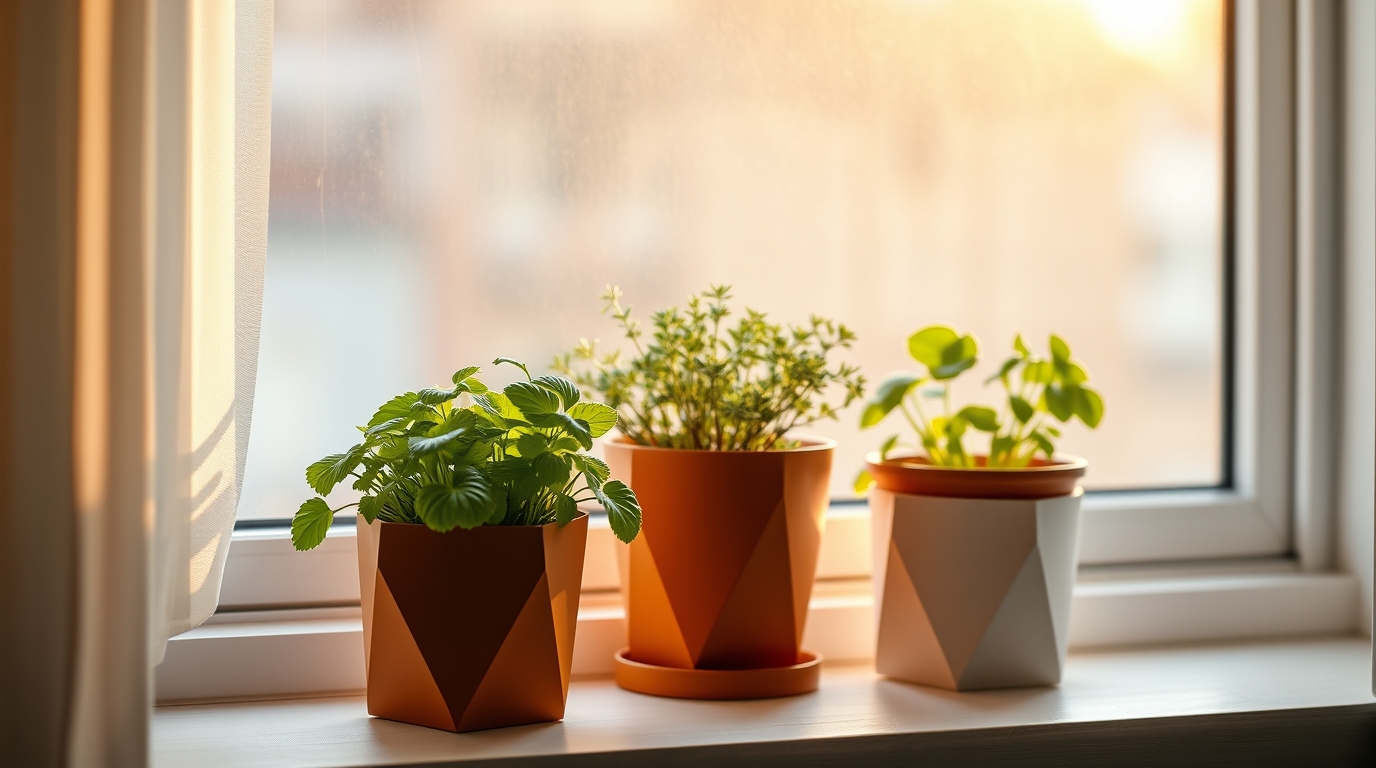
Learn How to Grow Herbs Indoors successfully! This guide covers lighting, soil, watering, and everything you need for a thriving indoor herb garden.
A Complete Guide How to Grow Herbs Indoors
Choosing the Right Herbs
Not all herbs thrive indoors. Some need intense sunlight that’s difficult to replicate. The best herbs to start with indoors are those that tolerate lower light conditions. Good choices include:
- Basil: A culinary staple, but needs good sunlight.
- Mint: Easy to grow and propagate, but can be invasive.
- Chives: A mild onion flavour, very easy to grow.
- Parsley: Flat-leaf or curly, both do well indoors.
- Oregano: Pungent flavour, prefers well-drained soil.
- Thyme: Aromatic and drought-tolerant.
- Rosemary: Needs lots of light and good drainage; can be challenging.
- Sage: A savoury herb that needs good ventilation.
Consider starting with a few easy-to-grow herbs and expanding your collection as you gain experience. Also, think about how you’ll use your herbs. Growing what you’ll actually cook with is more rewarding.
Essential Lighting Requirements
Adequate lighting is crucial for successful indoor herb growing. Natural light from a south-facing window is ideal, but often insufficient, especially during the winter months. Here are your lighting options:
- South-facing window: Provides the most intense sunlight.
- East- or West-facing window: Offers decent light for many herbs.
- Grow lights: Essential if you don’t have sufficient natural light. Fluorescent or LED grow lights are energy-efficient and effective. Position the lights a few inches above the plants and adjust as they grow. Aim for 12-16 hours of light per day.
Observe your herbs. Leggy growth (long stems with few leaves) indicates insufficient light.
Selecting the Right Soil and Containers
The right soil and container are vital for healthy herb growth. Use a well-draining potting mix specifically formulated for herbs or vegetables. Avoid garden soil, as it compacts easily and doesn’t drain well in containers.
- Potting mix: Choose a peat-free or coconut coir-based mix.
- Containers: Select pots with drainage holes to prevent waterlogging. Terracotta pots are a good choice as they allow the soil to breathe. Size matters – start with smaller pots and repot as the herbs grow.
Ensure your containers are clean before planting to prevent the spread of diseases.
Watering and Feeding Your Herbs
Overwatering is a common mistake that can lead to root rot. Water your herbs when the top inch of soil feels dry to the touch. Avoid letting the pots sit in water.
- Watering: Water deeply until water drains from the drainage holes. Reduce watering during the winter months.
- Feeding: Herbs generally don’t need a lot of fertiliser. Use a diluted liquid fertiliser specifically formulated for herbs or vegetables every few weeks during the growing season (spring and summer).
Monitor your herbs for signs of nutrient deficiencies, such as yellowing leaves.
Maintaining Your Indoor Herb Garden
Regular maintenance is key to a thriving indoor herb garden.
- Pruning: Pinch back the tips of the stems regularly to encourage bushier growth and prevent the plants from becoming leggy.
- Harvesting: Harvest herbs regularly to promote continued growth. Use sharp scissors or pruning shears to cut the stems.
- Pest control: Check your herbs regularly for pests such as aphids or spider mites. Treat infestations with insecticidal soap or neem oil.
- Air circulation: Good air circulation helps to prevent fungal diseases. Consider using a small fan to improve air flow around your plants.
Dealing with Common Problems
Even with the best care, problems can arise. Overwatering leads to root rot, underwatering to wilting, and pests can attack. Prompt action is key to preventing problems from escalating. Yellowing leaves can indicate overwatering, nutrient deficiency, or insufficient light. Adjust your care accordingly.
FAQ
How often should I water my indoor herbs?
Water when the top inch of soil feels dry, usually every few days. Avoid overwatering.
What kind of light do indoor herbs need?
Aim for at least 6 hours of direct sunlight daily, or supplement with grow lights for 12-16 hours.
Can I use regular garden soil for my indoor herb garden?
No, use a well-draining potting mix formulated for herbs or vegetables.
external_links:
